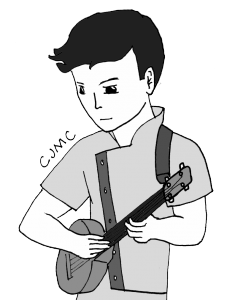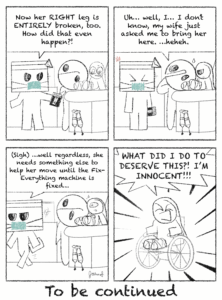Perhaps best known for his colorful and interesting on-stage costumes, his presence on Pitchfork (the pseudo-hipster millenial-focused news outlet) and his experimentation that has made waves within the genre of indie-folk, Sufjan Stevens is back with his folk album “Carrie & Lowell,” which is an intimate study of days gone by. It’s an outstanding album that is also arguably Stevens’ most personal.
In the album’s opener, “Death with Dignity,” Stevens sets the foundation of his complicated relationship with his mother, the Carrie mentioned in the album’s title. The song ends with some of the album’s most heartbreaking lyrics. With a lush voice, Stevens sings, “I forgive you, mother, I can hear you / And I long to be near you / But every road leads to an end / Yes every road leads to an end / Your apparition passes through me in the willows / Five red hens–you’ll never see us again / You’ll never see us again.”
In “Fourth of July,” Stevens details the mourning process of his mother, Carrie. He croons, “It was night when you died, my firefly / What could I have said to raise you from the dead? / Oh could I be the sky on the Fourth of July?”
We’re forced to ask ourselves what happened on Stevens’ July 4, a historical, ritualistic event rooted in America’s history. In effect, Stevens layers his own story upon our nation’s. The two stories parallel each other—both depict increasing independence with complicated (and complicating) results.
The eighth track on the album, aptly titled “Carrie & Lowell,” is a summation of the relationship whose history we are enduring. Over a quick and folky guitar-based melody, Stevens sings (in his slightly higher than most) voice, “Head on the floorboards (covered in blood) / Drunk as a horsefly / Climb on the mattress pad / Twist my arm.” The subject is horrible, but Stevens sings about it in such a beautiful way that we are forced to simply listen, not judge.
The metaphors in this album are real: more real than Stevens’ conceptual work, and more real than we are used to expecting from Stevens as a musician. It’s almost as if he is no longer a musician—he is a person telling his story in song. This is done in such an outstanding way that his musicianship is ignored (it’s that good!), and we are forced, as listeners, to see Stevens and ourselves as people.
He details how time changes and how our ways of perceiving time also change. Stevens makes a perfect narrator, showing us how events have led him—and, by extension us, his audience—to an existential crisis. “Sitting at the bed with the halo at your head / Was it all a disguise, like Junior High / Where everything was fiction, future, and prediction / Now, where am I? My fading supply.”
“Carrie & Lowell” is Stevens’ first real folk-based look at the past in years. Recently, he has been on an experimental kick, collaborating with Son Lux and Serengeti on the 2014 self-titled rap album “Sisyphus.” It’s worth noting that the backstories to most of Stevens’ albums are firmly rooted in gimmicks—his albums “Michigan” and “Illinois” were originally conceived as part of “The Fifty States Project,” which had the goal of producing one concept album per American state; the 25-minute long closer to 2010’s “The Age of Adz,” entitled “Impossible Soul”—the list goes on and on.
Perhaps what makes “Carrie & Lowell” such an enjoyable listen is the honesty, the pure depth to which Stevens is willing to show us his world and childhood. It is not overtly conceptual, but it fills (and—I would argue—exceeds) the expectations we have for Stevens as a singer-songwriter.
“Carrie & Lowell” strikes an interesting balance between historiography and nostalgic bliss. It’s the history of a childhood, complete with all the flaws that all childhoods have. It is a study of telling your own story, and at the same time is characterized by the pain we hear in Steven’s voice as he is forced to relive much of his childhood.
As a whole, “Carrie and Lowell” is one of Stevens’ most accessible and honest folk-based albums; not rooted within conceptual frameworks or inside jokes, it tells a story with a beginning and middle. We’re still waiting on the end.
Schaffer is a member of
the class of 2016.

